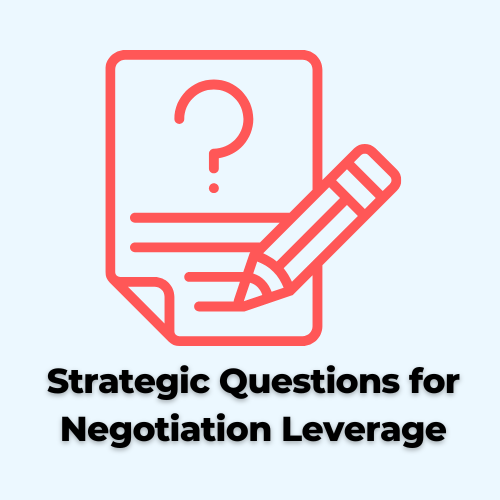The Ten Most Common Myths About Salary Negotiations Debunked
Salary is often the first factor people consider when deciding whether to accept a new job—and rightfully so! No matter how exciting a prospective role is, ensuring that you’re fairly compensated—particularly in today’s tough economic environment—can set you up for immediate and long-term career success.
So, what should you do if an offer falls below your expectations? Always negotiate it—before you accept or reject the initial offer. While job offer negotiation is an acceptable and expected practice, we recognize that many people don’t know how to negotiate a job offer and may believe that negotiating is daunting and pointless.
We’re here to help with that. In this article, we bust the most common myths surrounding job offer negotiation so you can approach your negotiation with confidence.
Want to Negotiate Your Offer? Get offer-specific guidance from a Salary Negotiation Coach. We help career professionals negotiate competitive job offers.
Or leverage our Salary Negotiation Courses and Salary Negotiation Templates.
 Job Offer Negotiation Course
Job Offer Negotiation Course
- Get our job offer negotiation strategies, templates, scripts, and guidance.
- Access our step-by-step lessons, compensation research guides, and tools.
- Access Now
 Raise Negotiation Course
Raise Negotiation Course
- Get our raise negotiation strategies, templates, scripts, and guidance.
- Access our step-by-step lessons, compensation research guides, and tools.
- Access Now
Myth #1: The employer will outright refuse.
Contrary to popular belief, job offers aren’t set in stone. In fact, many employers expect candidates to pursue a salary negotiation. At The Salary Negotiator, our clients enjoy a 94% success rate when negotiating their salaries—concrete proof that most organizations will compromise after finding the right candidate. If you’ve made it through the interview stage, you can be confident that your prospective employer wants you on the team! This gives you more leverage to negotiate the right compensation.
Myth #2: I don’t have any bargaining power to engage in a salary negotiation.
As a job seeker, it can feel as if a prospective employer is doing you a favor when they make an offer, leaving you without any bargaining power. While this mindset is understandable (you need a job, after all!), it couldn’t be further from the truth.
Why? Because companies spend a lot of time and money reviewing applications and interviewing candidates. Sometimes, it can take many months for companies to find the right fit, especially in specialized fields. If you reject the offer, the organization will have to return to the drawing board and spend even more time and money on recruitment efforts.
Therefore, it makes sense to first work with you to see if they can meet your needs before re-starting the recruiting process and leaving the hiring manager without their ideal candidate (you!).

- Build Negotiation Leverage – Ask the right questions to strengthen your negotiation before sending a counter.
- Email & Phone Scripts – Get our list of questions to ask and what to say if the recruiter wants to chat through them.
- Get Here
Myth #3: Your recruiter claims that the company won’t budge on their offer.
Let’s get one thing straight: recruiters work to secure the best deals for their companies and it’s their job to minimize costs. While the recruiter should be a close partner to you in this process, it’s vital to understand that they will use strategies to deter you from negotiating.
However, as any professional salary negotiation expert will tell you, all job offers are negotiable and it’s always worth it to negotiate. Given the amount of time you’ve already invested in preparing and interviewing for the role, it’s worth spending a few extra days researching and negotiating for a better offer.

- Overcome Recruiter Pushback – Proven scripts to handle pushback and keep your salary negotiation on track.
- Communicate Effectively – Use expert responses to get recruiters to advocate for you with the compensation team.
- Get Here
Myth #4: I need a another offer to be taken seriously.
Remember our client’s 94% salary negotiation success rate? Most of those successful candidates did not have a second offer on the table.
Regardless of if you have a another offer, the hiring team selected you for the role because they believe you have the right experience and skillset. They want to entice you to accept the job and leave your current company, so they’ll usually work with you to negotiate a deal—multipl offers or not. After all, you’re interviewing them, too!
If available compensation data shows that there is room for salary improvement, then you can follow our proven salary negotiation techniques to lean on those to justify an increase.
Myth #5: The proposed salary is higher than I expected—there’s no need to negotiate!
We get it—it can feel a little cheeky to negotiate an attractive offer. Many job seekers get excited when they see an offer higher than their current salary, so they don’t feel the need to negotiate because it already exceeds their expectations. However, it’s worth considering whether your expectations were too low in the first place.
If you’re moving to a role that requires more experience and responsibility, it’s only fair that you’re paid more and paid the same as others in that new role. Additionally, negotiating for a higher salary now will likely benefit your future salary negotiations in the future. It’s best to do some compensation research about your prospective new company’s pay structure and the average salary for your role and industry, then negotiate your job offer to ensure you are at the top end of that pay band.

- Understand Total Compensation – Use our tool to break down and calculate the compensation in your job offer.
- Research & Compare Offers – Organize your compensation research and determine the right counter amount.
- Get Here
Myth #6: The company will withdraw the job offer if I negotiate.
We appreciate that it can be nerve-wracking to ask for more money, particularly if you’re not accustomed to negotiating. However, we’ve never witnessed a company pull an offer due to a job offer negotiation—and we’ve helped hundreds of job seekers boost their pay. The worst-case scenario is that the company won’t agree to your proposed salary, but more likely than not, you’ll see an increase from their initial offer.
Myth #7: My offer is already at the top end of the range the recruiter provided.
Again, we don’t wish to undermine the hard work of recruiters, but it’s their job to lower companies’ costs by landing quality candidates at affordable rates. Have you checked whether the ranges you’ve seen are valid and that your offer is at the high end of the range? Even if it turns out your proposed salary is at the top end of the range, you can still attempt to negotiate a signing bonus or additional perks to sweeten the deal (this could include options such as remote working, extra vacation, funding for professional development, and more).

- Understand Total Compensation – Use our tool to break down and calculate the compensation in your job offer.
- Research & Compare Offers – Organize your compensation research and determine the right counter amount.
- Get Here
Myth #8: Talking about money so early on will harm my relationship with my new employers.
If you’ve never entered into a salary negotiation, you may expect awkwardness or aggression. Fortunately, most employers are willing to listen to candidates’ concerns and may even view your willingness to advocate for yourself as a positive trait. Of course, you should always remember to be professional and friendly when approaching the negotiation. If you’re unsure about what questions to ask or how to compose yourself, it’s worth hiring a salary negotiation expert to give you personalized advice that will help make the process less daunting.
Myth #9: Negotiations are stressful, and I don’t know how to bring up the issue.
One of the primary reasons candidates avoid job offer negotiation is that they’re afraid of confrontation. The good news is that the vast majority of conversations during this type of negotiation are friendly and relaxed. As long as you prepare what to say in advance and speak respectfully to your recruiters, you may even enjoy the experience and find confidence as you move through the process. Check out our recommended strategies for negotiating your salary in a stress-free way.

- Proven Counteroffer Templates – Built from hundreds of successful job offer negotiations.
- Negotiate with Confidence – Remove the guesswork with our professionally crafted counteroffers.
- Get Here
Myth #10: I must be a professional negotiator if I want to succeed.
Everyone has the right to negotiate their salary—including you! However, we appreciate that you may not know the best way to approach a recruiter about an offer. As such, we offer professional salary negotiation services to help job seekers maximize their earning potential. We’ve successfully helped hundreds of people just like you and are always willing to take on new clients. If you’re wondering whether you’d benefit from salary negotiation coaching, please get in touch for a consultation.
The bottom line
Through hundreds of successful salary negotiations with our clients, we have debunked these myths and believe everyone should negotiate before accepting a job offer. Salary negotiation is critical to increasing your career earnings and it is an essential step in the recruiting process. Don’t let myths or hearsay from others talk you out of advocating for yourself and getting the pay you deserve.
Professional Salary Negotiation Coaching
If you want to guarantee success in your salary negotiation, get Salary Negotiation Coaching from us. Our experience helping career professionals negotiate job offers will ensure you negotiate competitive compensation.
We also have our How to Negotiate a Job Offer and How to Negotiate a Raise courses, and Salary Negotiation Templates for those who want to learn at their own pace and gain the confidence and tools to negotiate their compensation. With downloadable email templates and job offer negotiation resources you will be prepared for all aspects of the salary negotiation.
 Job Offer Negotiation Course
Job Offer Negotiation Course
- Get our job offer negotiation strategies, templates, scripts, and guidance.
- Access our step-by-step lessons, compensation research guides, and tools.
- Access Now
 Raise Negotiation Course
Raise Negotiation Course
- Get our raise negotiation strategies, templates, scripts, and guidance.
- Access our step-by-step lessons, compensation research guides, and tools.
- Access Now

